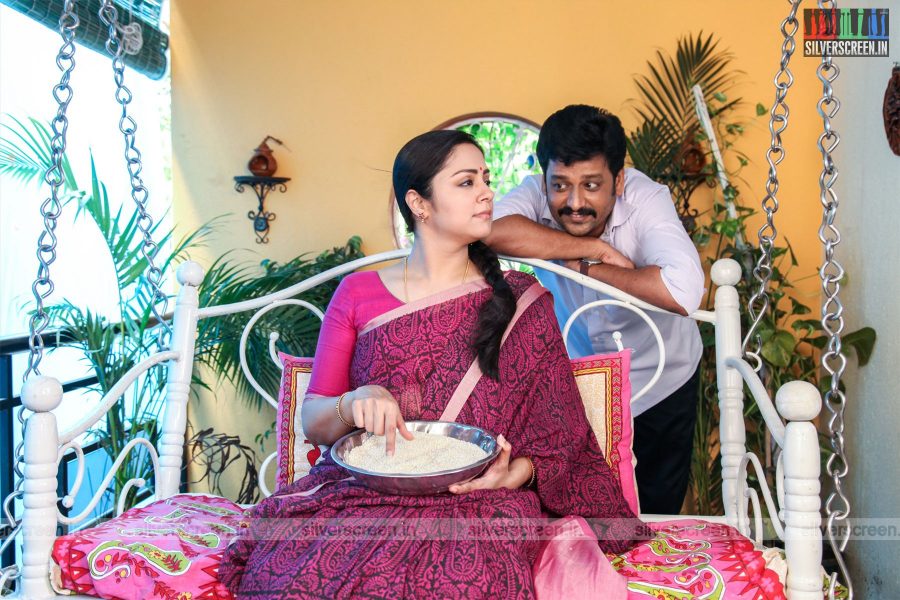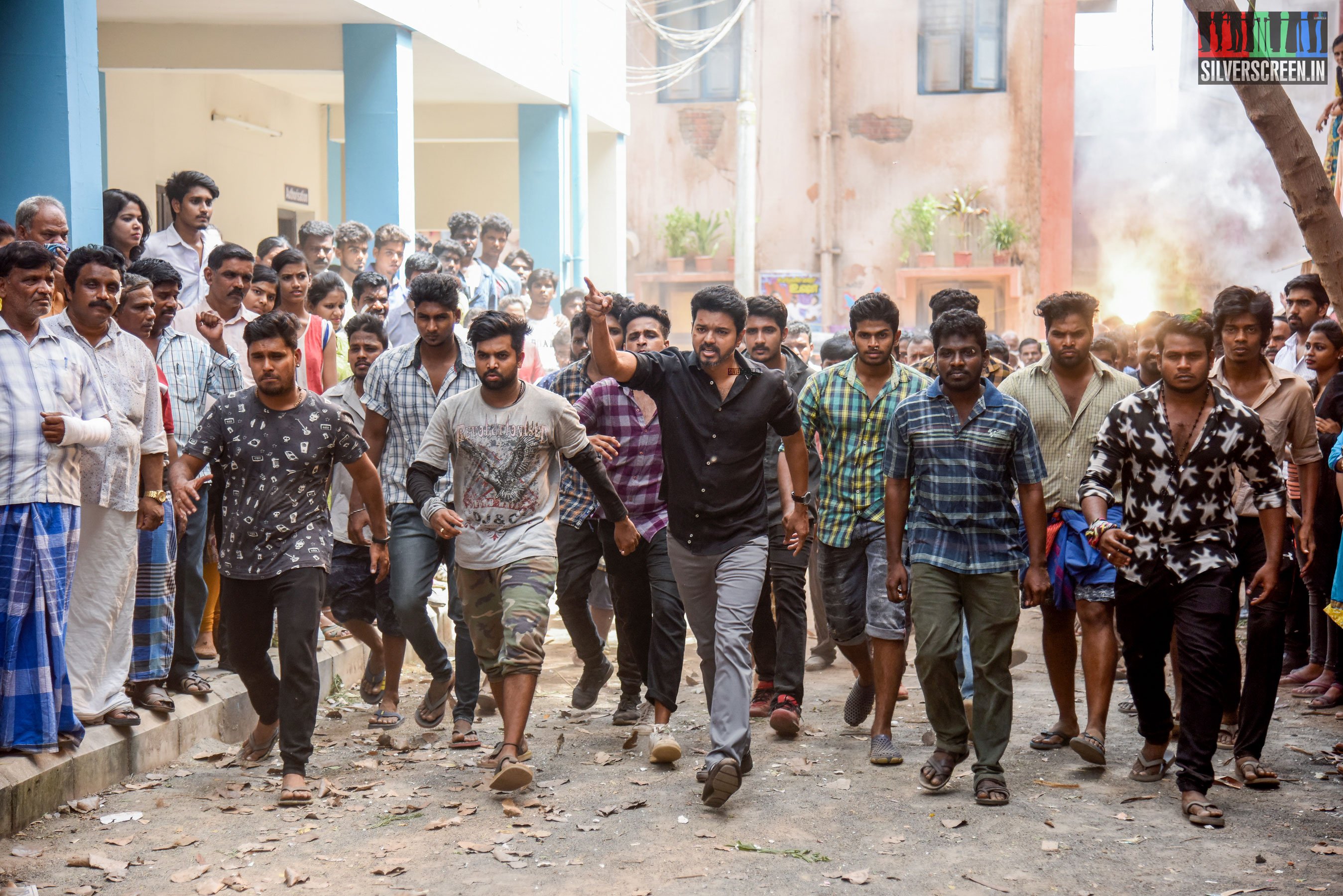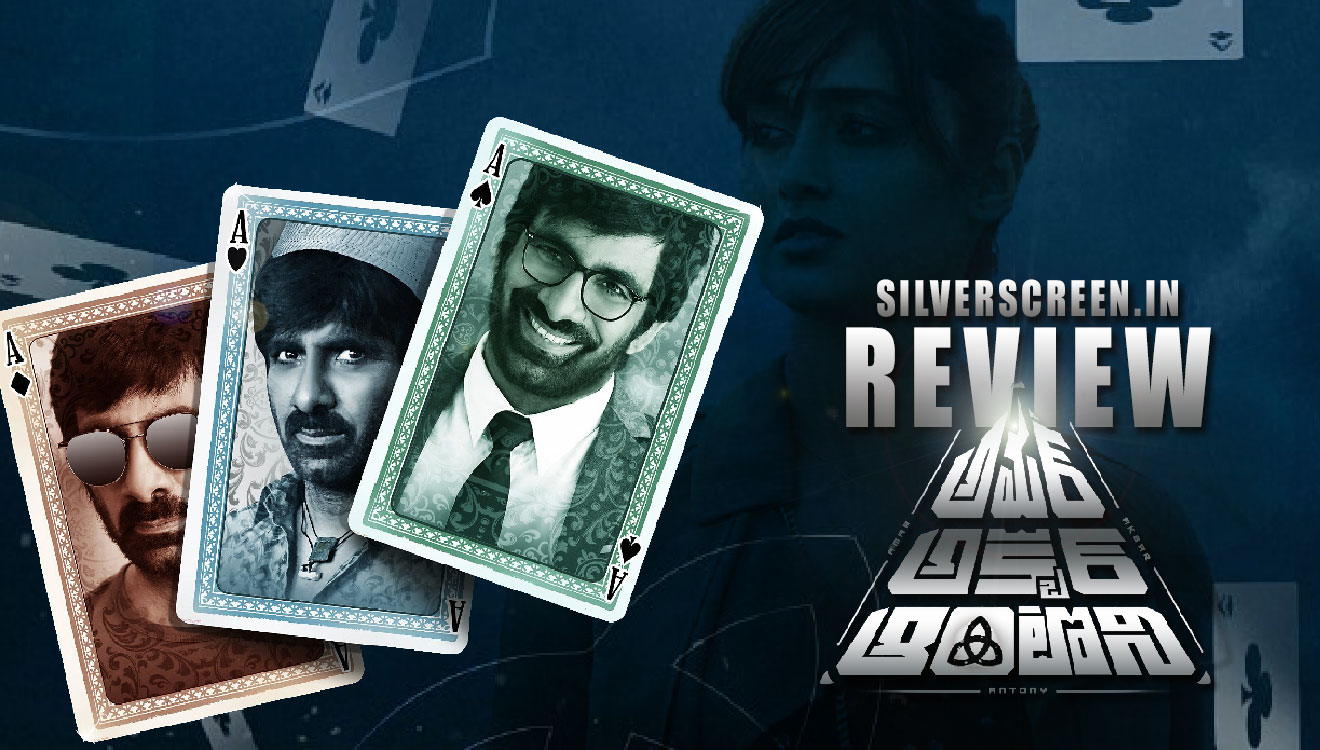Ms. En Scene – where Ranjani Krishnakumar concedes that cinema is life. Opinions expressed are those of the contributor, and not those of the company or its employees.
Within the first five minutes of watching Kaatrin Mozhi (2018), I fell in love. As a Jyotika fan — even during her Kushi (2000) days — I went to watch Kaatrin Mozhi expecting to love her. I’d watched Tumhari Sulu (2017), the Hindi original. Naturally, I expected Jyotika to do one better. So, when I fell in love with Baalu, played by the incredible Vidharth — I felt like I was cheating on Jo. This shouldn’t have happened. It couldn’t have. I am a Jo loyalist. Yet, while watching Kaatrin Mozhi, I found myself drawn to Baalu. You must understand that this isn’t attraction or infatuation. And I don’t use the word ‘love’ loosely. This is nothing like the way I am enchanted by Vasu of Poojai (2014), who is tall, dark and can squish the face of his opponent in one tight slap. Nor the way I am titillated by Pugazh of Eeti (2015) whose sculpted body makes my heart skip a beat.
What I feel for Baalu is pure love, the kind that declares vaazhkai-nu onnu vaazhndha, adhu ivanoda thaan [if a life has to be lived, it must be with him] and marches into the horizon to an Anirudh musical.
How could I not?
Before we see the hero of Kaatrin Mozhi — Viji, played by Jyotika — we see the guy-next-door Baalu. He builds up for Jyotika’s entry with an impatient recital of Ajith’s dialogue from Vivegam (2017).
“You are born to win. You can do it!” he tells her.
To the background of a you-go-girl intro song, Jyotika marches on dramatically. Baalu follows her goofily, laughing about their theatrics, but firmly by her side. She takes off her hoodie and throws it at him. He happily takes it from her — like his life’s sole purpose is to hold her things and wait at the finish line as she wins the race.
Solli vechaapla, only a moment later, he’s cheering her on from the spectator aisle, wearing her handbag too!
Baalu of Kaatrin Mozhi is your regular guy. He’s neither a hero, nor a villain. He doesn’t have self-aggrandising pastiche masquerading as punch dialogue. He doesn’t even have a young, new second heroine upping his sex quotient. He’s just an ordinary chap with warts and all. In fact, he’s even a bit of a failure. In a way we all are — can’t get his TV replaced, can’t get the lyric right, can’t stand up to his boss, can’t even tell his father-in-law off. Half of the good jokes in the film are about how easily seduced he is.
It’s these little pieces of reality that make Baalu so utterly lovable.
Sample this: Before the now-famous scene where Viji sees herself as an air-hostess in the mirror, Baalu is leaving for work. Viji hurries up her son with:
“Elaathulayum slow. Appa madhiri.” [Slow in everything. Just like your father]
“Ok, bye,” says Baalu and leaves for work.
If this doesn’t embody the perfect marriage, I don’t know what does.
Oh wait, I know. It’s this scene just a few minutes after. Frustrated by his work situation, he tells Viji,
“Edhaavadhu business panlaama? 50–50?”
She shows no interest.
He moans a wee bit and asks her to make a baby with him. 50–50!
She gives him one tight punch and says, “Partnership venum-na kitchen-la vandhu vela sei.” [If you want a partnership, come work in the kitchen]
He laughs sheepishly at her comment, I’m sure all the while plotting ways to wriggle out
of kitchen work.
And then, there’s this scene where Viji tells him that she might get paid a salary of Rs 25,000 as an RJ. He is skeptical, and unsupportive. On hearing that, she blows her top off. She brings the weight of her sarcasm and self-loathing to the fight. He brings gentle love and tender humour to it. He seems like an ideal ally by this point.
Yet, when faced with the realities of her unconventional job, he reacts like any man would. “Idhu unakku thevaiya?” [Is this necessary?] is his main argument. When he returns home and doesn’t find her, he calls her radio show and cries about the gaping hole she has left in his life by finding herself a job. As his life changes, he selfishly longs for her to come tend to him, instead of pursuing her own dreams. When he begins to miss her, he makes it her fault.
At one point, when his work-life isn’t going well, their roles reverse. He blows his top off. He brings the weight of his sarcasm and self-loathing to the fight. Unable to bear the changes in his hitherto comfortable life, he shames her hoping she’ll give up. He even jumps sides — joining her detractors. Like I said, he’s your regular guy.
Recommended
Yet Baalu is vulnerable. He cries when he can’t bear his life. He pleads for his life to return to normal. The most endearing thing about Baalu is that he allows himself to change. He is capable of looking beyond himself and see what brings joy to his wife. He is able to see her point of view and learn from it. The heroic journey in Kaatrin Mozhi is both theirs — and I mean it in a good way.
Un unmaiyaana anbukku munnaala, en penmai thothu pochu, Baalooo, thothu pochu!
*****
Unmistakable. Meticulous. Predominantly an essayist. Evolved from a marketer. Ranjani Krishnakumar eats Tamil films all day and fruits for breakfast. Roosts with pair in Chennai apartment. Usually found chasing Vitamin-D. Believes “Dei” or “Pch” is the answer to all questions.
Twitter: @_tharkuri



